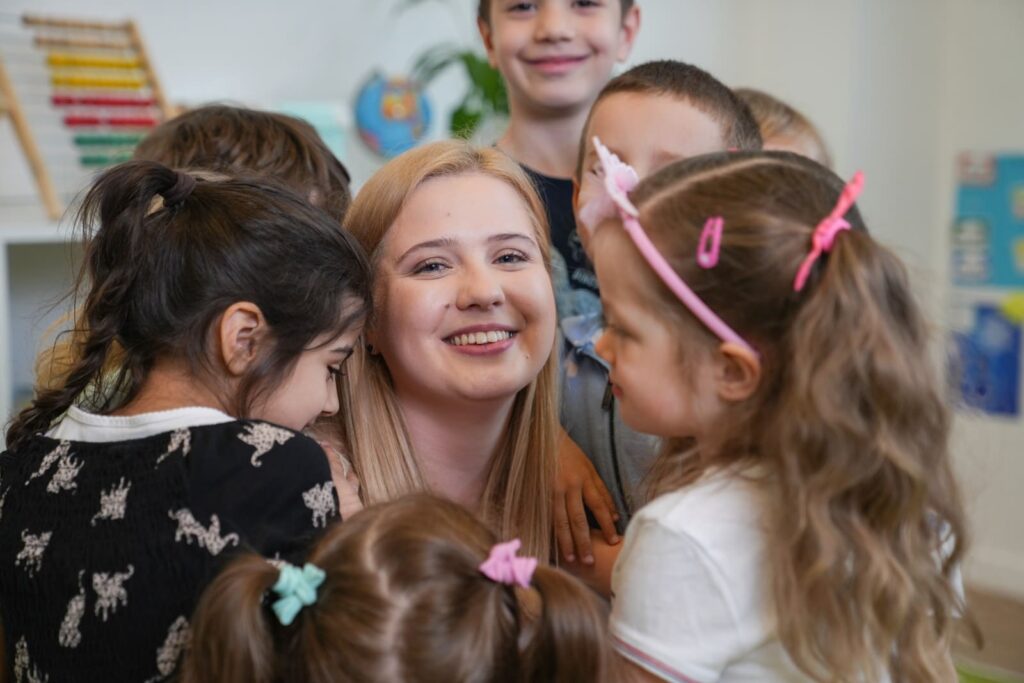The first of November is approaching, a time of reflection, reflection and memories ... Our children may have questions about passing or death. Talking about death is difficult for adults, so how do you talk to your child about it? Or maybe not to talk? Pretend death doesn't exist? After all, the preschooler will not understand it yet…. What to do when a child asks for death?
___________
We invite you to listen to the conversations on this subject conducted in Telewizja Wirtualna Polska (2018) with Joanna Goc-Matyskiel, our teacher, long-term methodologist and director of Gaudeamus Schools (please click on the title):
- How to talk to children about death. A toddler may feel guilty "
- "A funeral is like a first train ride for a child"
- "How children accept death"
___________
There is no one proven way, but most of all, you should be honest with your child, not avoid conversations on difficult topics, so that they do not become taboo. Truth is the most universal method. Of course, it must be adapted to the age of the child, which, however, does not justify euphemisms or lies. They confuse the child and require repeated correction of the world view. Telling a child that "Grandma is gone" may raise the question, "So when will she be back?" By telling a child that a person has "fallen asleep forever", we can cause him to fear falling asleep - "maybe I will fall asleep someday and won't wake up?"
Then what to say to the child?
It is best to explain to your child that you cannot perform certain activities after death, eg that you cannot move, look, think or feel, eat, read, etc. During the conversation, you may also be asked about the parent's death. These questions also need to be answered truthfully: "Yes, everyone will die one day, but I think we will live a long time and together we will live to old age." There are times when parents try to "tame" death using all sorts of metaphors and comparisons. Unfortunately, in this way we can confuse the child's thinking, and often also cause fears and anxieties, e.g. comparing death to sleep is associated with the risk of the child's fear of going to sleep and falling asleep. Don't say that someone is gone or gone far. The child will wonder why this someone has not said goodbye and may keep asking when he will be back. It can also feel abandoned and abandoned. He will be afraid that whoever leaves will never come back. Do not fool the child that only old people die. He will surely find out soon that this is not true. Avoid stating that the cause of death was disease. A toddler does not know the difference between a common cold and a terminal illness and may be terrified when he or someone else in the family falls ill. It should be made clear that only a very serious disease can cause death. When talking to your child, avoid saying that there is still time to worry about it. Everyone must understand and tame the problem of death. If a child asks a question, it means that he or she is ready to understand it, even partially. There is nothing worse than making death a taboo subject. This causes a build-up of fears, worries and insecurity. It is never too early for difficult conversations about death, but you should remember that they should be conducted naturally. Opportunities for such conversations arise by themselves, for example, during autumn walks - falling leaves, a dead bird in the park, a withered flower - all this allows us to explain that what is born passes away.
November 1 is a good opportunity to talk, when we visit the graves of our relatives. We can not only light candles, but also talk about who and what they were, what they left behind - this is a unique time of conversation about passing away. It is important to talk honestly and freely with your child. Follow the questions he asks. If he stops asking, it means he has to think it over or his curiosity has been satisfied. Losing interest in a topic is also one way of defending against too much information. So remember not to overdo it the other way too - death is not a topic for a single conversation. The child's awareness of this subject should be developed gradually and slowly. So let us not be afraid to talk to our children about death, even though it is a difficult topic.
I also encourage you to read the following literature, which will be helpful in explaining to the child such a difficult and emotional topic as death: "Hansel's Leaf Autumn" by Leo Buscaglia, "The Lionheart Brothers" by A. Lindgren, "Candy for Grandpa Tadek" by I. Brezinova or "Goodbye Mr. Muffin" by U. Nilsson, "Goose, death and tulip" by Wolf Erlbruch, and for slightly older children "Oscar and Mrs. Rose" by EE Schmitt or "Where are you going" by S. Rartan, "Garmann's Summer" by Stian Hole, " Olivier and the dream book ”SallyNicholls.
Magdalena Dulęba - Basior
psychologist, special educator, therapist;
founder of the Private Clinic
Psychological and Pedagogical Center "Promyk Center";
long-term PPC associate




